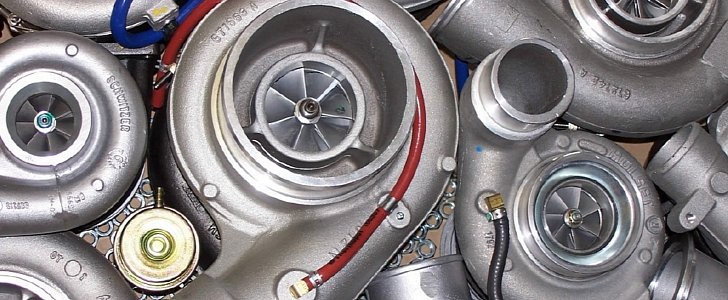What Sets Engines For Africa Apart in the Sector
What Sets Engines For Africa Apart in the Sector
Blog Article
Check Out a Variety of Engines for each Lorry and Purpose
The automobile landscape is significantly intricate, with a diverse variety of engine types designed to fulfill particular performance and efficiency needs throughout various lorry categories. Additionally, heavy-duty engines serve the needs of job automobiles, while environmentally friendly choices are obtaining grip in the search of sustainable transportation.
Kinds Of Automotive Engines
Automotive engines can be classified into numerous unique kinds, each created to meet certain performance and performance demands. One of the most common categories include inner combustion engines, electrical engines, and crossbreed systems.

Electric engines, on the other hand, run on electric power saved in batteries, giving immediate torque and no emissions. These engines are becoming significantly prominent due to advancements in battery innovation and the expanding emphasis on sustainability.
Hybrid systems integrate both internal burning and electrical engines, enabling vehicles to maximize fuel effectiveness and lower emissions by perfectly switching in between power resources. Each engine kind provides its advantages and drawbacks, affecting elements such as automobile layout, planned use, and market need. Comprehending these distinctions is critical for producers and customers alike when choosing the proper engine for their particular demands.
Efficiency Engines for Sports Cars
Efficiency engines for cars are specifically engineered to provide improved power, agility, and speed, establishing them apart from basic automobile engines. These engines frequently make use of advanced technologies such as turbocharging, turbo charging, and variable shutoff timing to maximize performance and responsiveness.
Typically, efficiency engines are created with higher compression ratios, which enable better power extraction from fuel. This results in remarkable horsepower and torque figures, allowing rapid acceleration and higher leading rates. The lightweight products used in these engines, such as light weight aluminum and carbon fiber, add to minimized overall lorry weight, improving handling and maneuverability.
Engine configurations like V6, V8, and also hybrid systems are typical in efficiency sports autos, each offering one-of-a-kind benefits in regards to power delivery and driving dynamics. The adjusting of these engines is likewise crucial; lots of makers enhance the engine management systems to supply an exciting driving experience, typically including sport settings that change throttle reaction and equipment changes.
Efficient Engines for Daily Commuters
In the world of daily travelling, efficient engines play a critical role in maximizing gas economy and decreasing emissions while offering dependable efficiency. As urban populations expand and ecological problems heighten, the need for lorries geared up with reliable powertrains has surged.
Modern engines designed for day-to-day commuters typically include technologies such as turbocharging, direct fuel shot, and crossbreed systems. Turbocharging boosts engine performance by requiring more air into the burning chamber, enabling smaller sized, lighter engines that do not endanger power output. Direct fuel shot improves gas atomization, leading to much better burning and increased efficiency.
Hybrid engines, combining inner burning with electric power, further augment gas economic climate, particularly in stop-and-go website traffic, where typical engines can deal with inadequacies. Electric motors aid throughout velocity and can run independently at reduced rates, lowering overall fuel consumption.
Moreover, advancements in engine management systems and lightweight materials contribute dramatically to reliable engine layout. By focusing on efficiency, longevity, and ecological sustainability, makers proceed to supply engines that not just meet the needs of day-to-day travelling yet likewise align with international initiatives to reduce carbon impacts.
Heavy-Duty Engines for Work Vehicles
Sturdy engines for job automobiles are regularly engineered to provide exceptional torque and reliability under requiring conditions. These engines are designed to execute in atmospheres where traditional engines might fail, such as building and construction sites, logging procedures, and agricultural settings. The primary emphasis of durable engines is their capacity to create high degrees of power while maintaining durability over prolonged periods of procedure.
Normally, heavy-duty engines make use of advanced products and robust building methods to hold up against the rigors of heavy work. Features such as strengthened cylinder blocks, boosted cooling systems, and advanced fuel injection modern technologies add to their effectiveness. These engines frequently operate at lower RPMs, which assists to optimize gas efficiency while supplying the required power for towing and transporting.
Along with mechanical effectiveness, sturdy engines are commonly furnished with advanced digital control units (ECUs) that manage performance, exhausts, and diagnostics. This assimilation permits far better surveillance and maintenance, making sure that work lorries remain functional and reliable.
Inevitably, heavy-duty engines are an important part in the productivity of different markets, offering the necessary power and integrity to take on image source the toughest of jobs.
Eco-Friendly Engine Options
The growing emphasis on sustainability has resulted in the growth of eco-friendly engine alternatives that focus on lowered emissions and boosted fuel performance. These engines are designed to minimize the environmental effect of vehicles while still supplying the performance and integrity expected by consumers.
Among one of the most significant environmentally friendly choices are electrical and hybrid engines. Crossbreed engines combine typical inner burning engines with electrical propulsion, enabling for reduced fuel intake and reduced greenhouse gas emissions. Electric engines, on the other hand, operate completely on battery power, creating no tailpipe emissions and adding to cleaner air top quality.
An additional encouraging growth is the advancement of biofuel engines, which use renewable energies, such as plant materials, to power lorries (Engines For Africa). By utilizing biofuels, these engines can decrease dependence on fossil fuels and reduced general carbon footprints

As the auto sector develops, green engine options will play a vital function in driving the transition in the direction of more lasting transportation solutions.
Final Thought
From high-performance engines that boost sporting activities automobile abilities to reliable designs prioritizing fuel economic situation for daily commuters, each type serves a particular feature. Sturdy engines cater to durable job vehicles, while eco-friendly options, such as electric and biofuel engines, promote lasting transportation.

Report this page